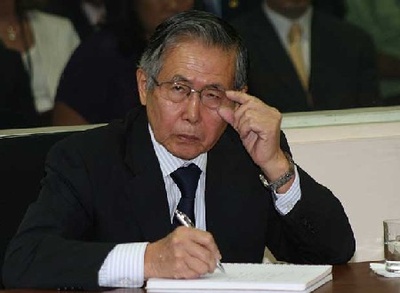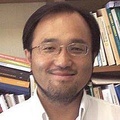This article will be published on Tuesday, April 7th, the day in which the Supreme Court’s Special Criminal Section will announce the verdict in the case against the former president, Alberto Fujimori. I write this essay, therefore, without knowledge of the verdict. I am like most people in Peru who thinks the trial proceeded admirably; the prosecutor’s office, the defense team, and those representing the victims also agree with that sentiment. The case will be heard on appeal where Judge Duberlí Rodríguez will preside. He enjoys the recognition and confidence of all of the parties involved.
We should not lose sight of the circumstances that allowed us to reach this point: a few, sufficiently eventful set of hazardous circumstances, while other circumstances reveal errors of calculus, and even others which show how our country enjoys a political and institutional consistency much greater than that which the general public recognizes. It also is fitting that we evaluate what we have learned from all this.
The first lesson is a consequence of a very risky game that had a bad end: Fujimori was living a tranquil existence in Japan, protected by his Japanese nationality and by the incompetence of the Toledo government in the handling of the extradition process, but then, unexpectedly, he traveled to Chile in November 2005. At first, the episode seemed a calculated move to reconfigure the stage for the 2006 elections, but immediately afterward, in another surprise move, the Chilean government detained Fujimori. Later, in July 2007, Judge Álvarez denied Fujimori’s extradition to Peru. At this moment it was thought that Fujimori would be deported back to Japan, and that the Japanese government would be putting pressure to get him back (we should also recall the indignant episode of Fujimori’s candidacy to the Japanese senate). Nevertheless, in September 2007, the Supreme Court approved the extradition on appeal.
Soon Fujimori arrived in Peru. From the time in which he was detained to the start of the trial all kinds of rumors circulated throughout the country. Under the theory that spoke of the alliance between APRA and Fujimori’s supporters it was said, among other things, that the Peruvian government, in exchange for the votes of Fujimori’s supporters in the Congress, Fujimori would receive an unduly generous prison term, from formal prison time to house arrest; also, that the prosecutor, Avelino Guillén, would be removed from the trial and that would be founded the way to declare the nullity of the trial, etc. None of this ever occured.
What can we conclude based on this recount of facts? Firstly, this historical achievement of the Peruvian justice—the prosecution of a former president without any major problems—is a result, in part, of a series of hazardous and unpredictable factors. Luck intervened in a decisive way, and the verdict happened despite having so much going against it. Another lesson is that our institutions function when they decide to and they are subjected to an intense public scrutiny. Likewise, the gloomy visions related to backroom deals between the government and Fujimori’s supporters failed to materialize. Again, in order to better understand the behavior of both the government and the former president’s supporters, we ought to analyze their common interests and visions, and not the supposed backroom deals and agreements between them.
*Article taken from Virtù e Fortuna from Martín Tanaka’s blog, with permission of the author for publication on the Discover Nikkei website (Agreement San Marcos Foundation). It was published in the newspaper Diario La República on Tuesday, April 7, 2009. Fujimori’s photograph is taken from the following website: http://www.elpais.com/articulo/internacional/Alberto/Fujimori/condenado/25/anos/carcel/delitos/derechos/humanos/elpepuint/20090407elpepuint_12/Tes
© 2009 Martín Tanaka




